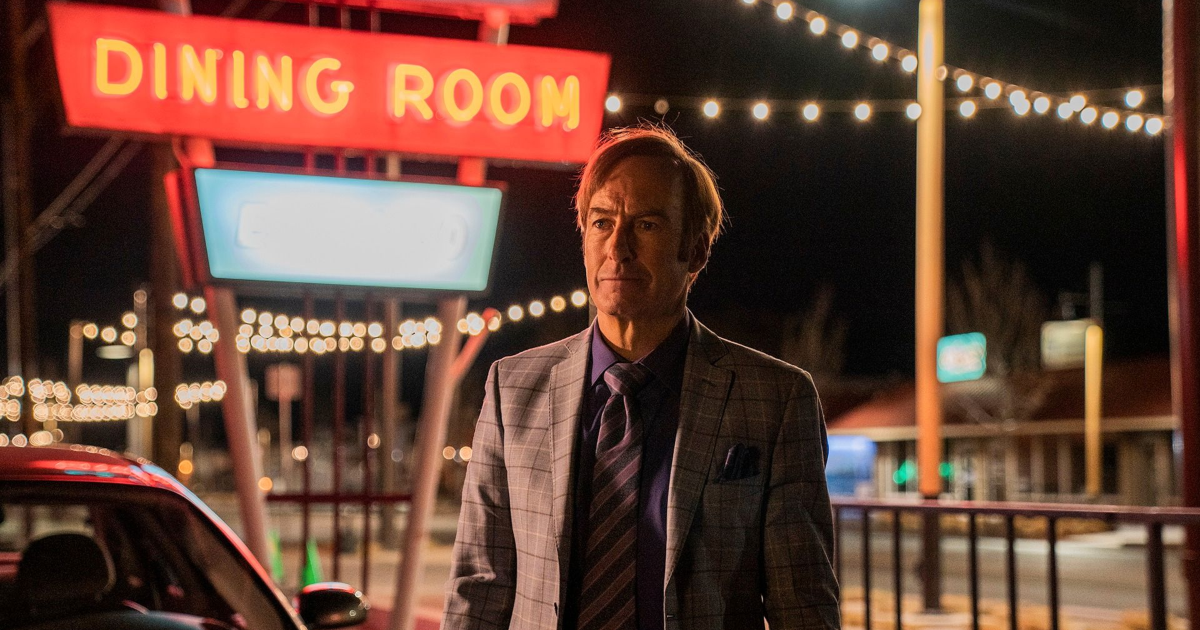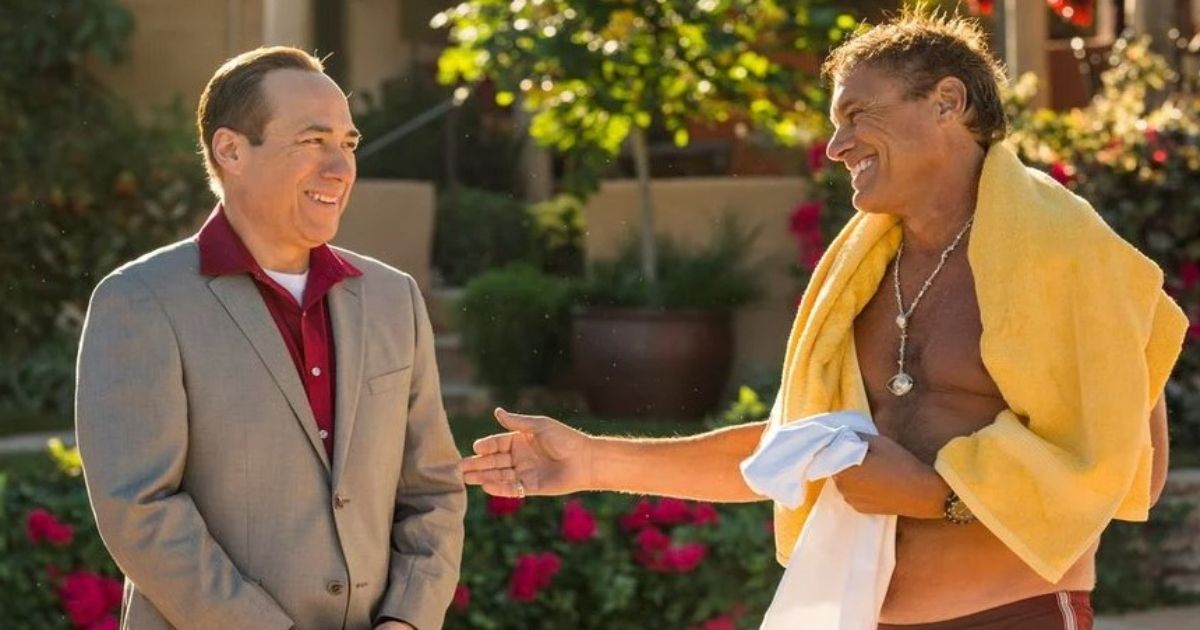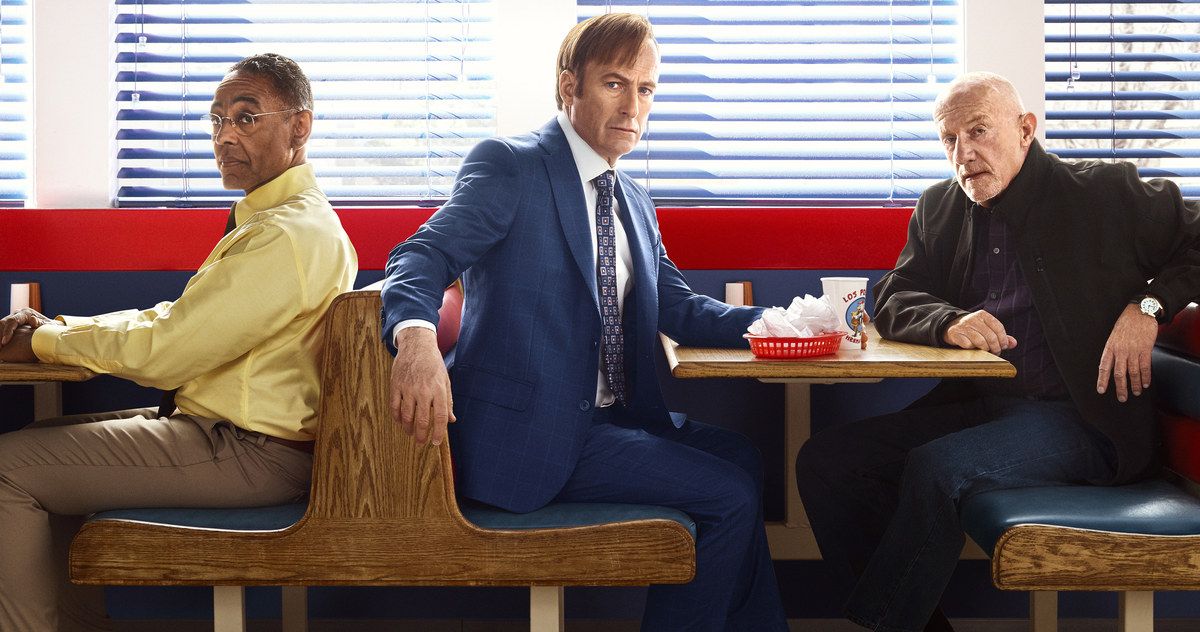The TV spin-off is a popular concept that has existed in for quite some time now, and the debate over whether spin-offs are necessary is one that still continues today. While there have been many failures, there have also been quite a number of successes as well. Better Call Saul starring Bob Odenkirk as fan-favorite character Saul Goodman from acclaimed hit Breaking Bad is one such spin-off that's received considerable acclaim and attention throughout its run.
The series takes a beloved character and expands on his backstory while still delivering a suspenseful, heartfelt, and surprising narrative that's continued to engage with audiences over the course of six seasons. There are many factors that have contributed to the success of Better Call Saul, from its filmmaking, strong ensemble cast, and clever continuity with its parent series. Let's break down how Better Call Saul has mastered the art of the spin-off.
Character Development in Better Call Saul
The benefits of a spin-off series are that they can take beloved characters and develop them in ways we haven't seen before. For Better Call Saul, this treatment especially applies. Not only does the series give us added insight into Saul Goodman and his life as Jimmy Mcgill, but it also expands the arc of other Breaking Bad fan-favorites, such as Gus Fring and Michael Ehrmantraut as well.
The arc of Jimmy becoming Saul Goodman adds genuine depth to his character and reveals many layers that weren't present in Breaking Bad. The addition of Mike also adds emotional weight to his character, and explores his desire to protect his family while also balancing his localities to Gus and expanding on the stoic, tragic nature of Mike hinted at in Breaking Bad. While it'd be tempting to have these returning characters appear for mere cameos, thankfully Better Call Saul allows us to gain new perspectives into their arcs hat we hadn't witnessed beforehand.
The hallmark of a good spin-off is being able to revisit established characters and experience a whole new side to them. In that regard Better Call Saul puts great care into the progression of its characters, allowing us to examine them in ways we hadn't seen before.
A Talented Ensemble Cast
The other benchmark of a good spin-off is having newer characters that are just as compelling as previously established ones. For Better Call Saul, the addition of Jimmy's love interest Kim Wexler, his brother Chuck, and Howard Hamlin all contribute significantly to the series. Each of these characters have compelling arcs of their own, but they also help to examine key aspects of Jimmy's character as well. Ultimately, this would be impossible without the great performances from this ensemble which truly helps sell their individual arcs.
Rhea Seehorn in particular has delivered a consistently powerful and heartfelt performance as Kim Wexler throughout the series (and should finally get her Emmy for it), and Michael McLean gives a truly multidimensional performance as Chuck, whose complicated relationship with Jimmy is the emotional glue of the series. Even characters such as Howard Hamlin who could've just been one-note end up becoming more nuanced over time, thanks to Patrick Fabian's complex performance.
The craft and care Vince Gilligan puts into his characters is notable in much of his work, and his rich and varied characters come to life thanks to the well-selected ensemble cast. The ensemble cast of Better Call Saul proves that your supporting characters are just as integral as your protagonist and have been rightly praised for their efforts.
Better Call Saul Tells a Compelling Tale of Its Own
The biggest obstacle with a spin-off series is creating an equally compelling arc that doesn't fall back or rely too heavily on its predecessor. Thankfully, Better Call Saul manages to navigate its own territory while still maintaining a strong continuity with its parent series. The show wisely doesn't attempt to emulate Breaking Bad beat by beat, and while it does have its similarities, thankfully it manages a unique tone that's both dramatic and comedic, but also intimate and character-driven. Better Call Saul derives much of its suspense from the decisions of its characters and how the impact of said decisions unravels. This allows us to gain a genuine exploration into our characters' motivations and how that impacts the consequences of their actions.
While Breaking Bad could be defined as a Greek tragedy, Better Call Saul could be labeled as a cautionary tale of letting one's morality slip. Both take differing approaches but manage to serve as strong companion pieces to one another, but still remain distinct from each other. It's a true sign of a great spin-off that, while knowledge of the original series makes the viewing experience better, it can be thoughtfully enjoyed even on its own.
It Has a Legacy of Its Own
The ultimate key of a successful spin-off is that it manages to leave an impact of its own. For Better Call Saul, many fans have sung its praises and some believe it's just as good if not better than Breaking Bad. It's a testament to the craft, quality, and dedication of its creators and cast that Better Call Saul has gone on to receive such universal acclaim and praise from critics and audiences alike.
When all is said and done, many spin-offs can suffer under the weight of the original and only exist in comparison, but thankfully Better Call Saul is able to elevate its status to become something truly deeper and more personal than a mere continuation of a popular series. With its introspective storytelling, varied character arcs, and a strong insight into its antihero protagonist's moral failings, Better Call Saul proves to be yet another achievement for Vince Gilligan and company. When the dust settles, many fans will not only remember Better Call Saul as one of the strongest TV spin-offs, but as an extremely accomplished series in and of itself.


.png)

-1.png)
